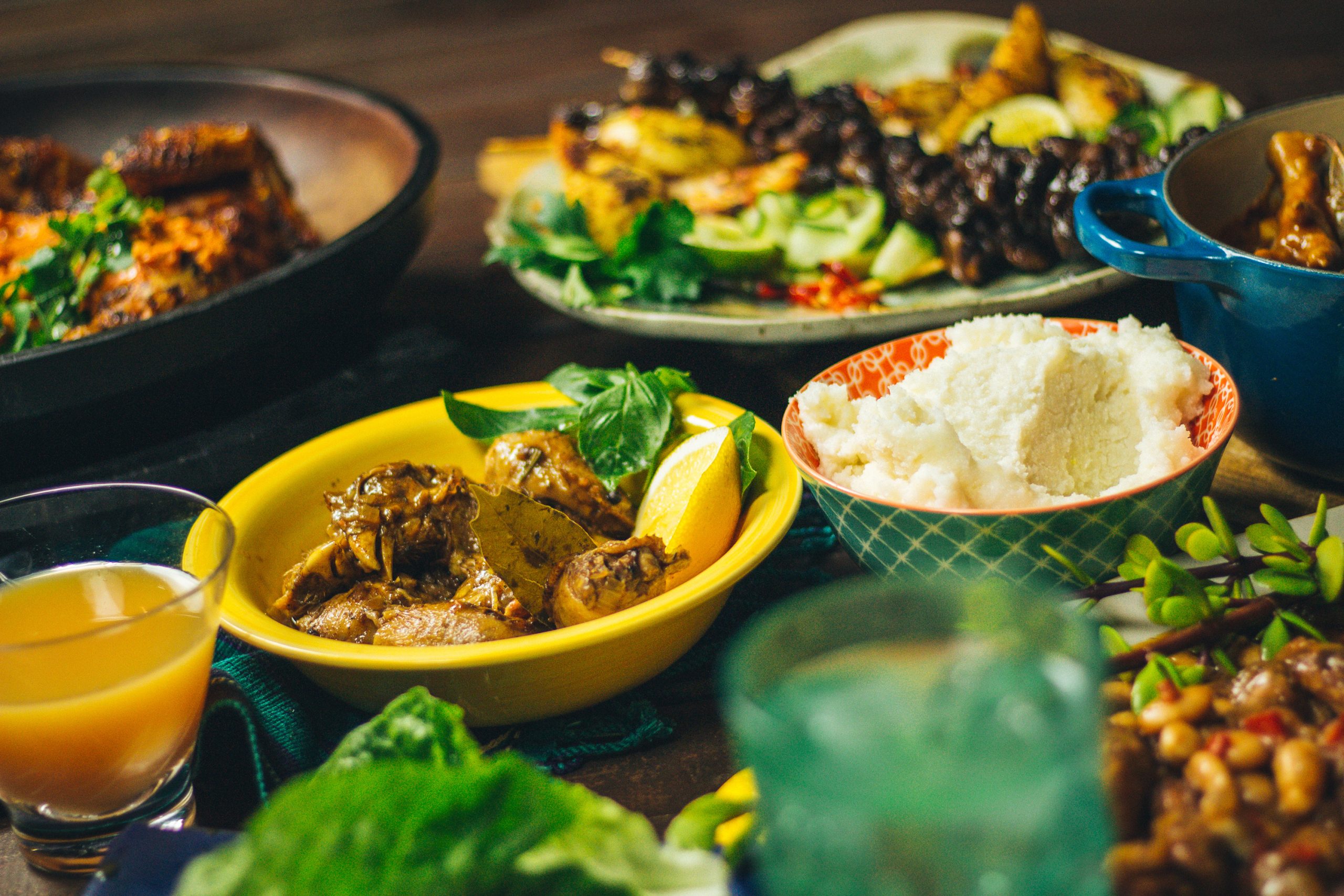
Meals and Hospitality in Ndebele Culture
Ndebele Meals and Hospitality
Traditionally the Ndebele people have consistently demonstrated specialisation and division of labour within their social setup. So in the preparation of meals, the men were responsible for gathering firewood, cutting it to size and slaughtering the animals, or going hunting. On the other hand, meals were prepared by the women with the assistance of young girls. Meals times in traditional Ndebele setups were daily family gatherings where everyone sat down for breakfast, lunch, or dinner. However, with the advent of modern influences, the evening meal may be the only time the family gathers together at the end of the day.
When guests visit, announced or unannounced, they are provided a meal, and their needs are prioritized over those of the household/homestead. For this reason, some families would deliberately prepare more than what is usually enough for the family. The guests will be given the best food and drink prepared or prepare a good for them. This practice is part of Ubuntu hospitality. It is common practice for Ndebele women/mothers to take out their best kitchenware when there are visitors, not as a sign of showing off, but rather to show gratitude and value for and to a guest.
Breakfast
A typical Ndebele breakfast will typically be hot tea, plain or with milk, and homemade bread (nowadays, some might prefer lemon juice to tea or even imported coffee). Since the Ndebele are traditionally agriculturalists, they kept live, free-range chickens, whose eggs could also be added to the breakfast. However, they did not do this regularly as it would prevent the chickens from multiplying.
Sometimes a light cornmeal porridge served plain or with milk was also added to the breakfast. The Ndebele also made soft porridge from pounded sorghum, which was predominant when there was much work at the fields, such as ploughing. It was meant to be breakfast that would last and match manual labour in the fields. They also consistently served the soft porridge to new mothers to help in milk production for feeding the baby.
Lunch & Dinner
The Ndebele people’s staple food is maize/corn. Maize/corn can be eaten alone or in conjunction with other ingredients. Maize/corn can either be boiled, dried, or processed as maize meal. The processed maize meal is used to make the main starch in Ndebele meals-Isitshwala, a thick cornmeal porridge.
Isitshwala Recipe:
You will need:
- Maize Meal (Imphuphu)
- Water (Amanzi)
- In a large saucepan, boil 3 cups of water.
- Mix one quarter maize meal with a cup of water in a mixing bowl until you get a thick paste. Add boiling water to the paste, constantly stirring with a wooden spoon.
- Do not allow lumps to form and do not allow it to stick to the bottom of the pan. Stir constantly.
- Add a tablespoon of margarine (optional)
- Cover the pan and let boil for 10 to 15 minutes over medium heat.
- Gradually add the remaining maize meal and mix vigorously to blend cornmeal into the mix.
- The mixture should be thick and smooth.
- Cover and let simmer for 5-10 more minutes over low heat.
- Serve with green vegetables and beef/chicken stew or curdled (sour) milk
Starches:
- Imphuphu is any form of milled flour, including maize meal used to make Isitshwala. It includes the following
- Inyawuthi Millet
- Amabele Sorghum
- Umumbu Corn/maize
- Amatshakada Hominy (from dried corn/maize)
- Rice
Animal Proteins /Inyama:
| IsiNdebele | English |
| Inyamayenkomo | Beef |
| Inyamayenkuku | Chicken |
| Inyamayembuzi | Goat |
| Kudu, Impala, e.t.c | Game Meat |
| Amathumbu | Beef or Goat intestines |
| Ulusu | Tripe |
Other Common Foods, snacks, and delicacies
| IsindebeleEnglish | |
| Imbhida | Leafy greens in general |
| Ibhobola | Pumpkin Leaves |
| Ulude | Spider flower leaves |
| Amahlamvuendumba | Sugar bean Leaves |
| Amakhomane | Plants belonging to the squash family |
| Amathanga | Pumpkins |
| Amakhabe | Melons |
| Inopi | Porridge made from Pumpkin |
| Inkobe | Boiled maize kernels with beans or nuts |
| Umxhanxha | Melon with maize kernel soup |
| Amazambane | Peanuts |
| Amaqanda | Eggs |
| Amasi | Curdled sour milk |
| Idelele | Okra |
| Izinhlwa | Flying ants |
| Amacimbi | Mopane Worms |
| Umganu | Fruit of the Amarula Tree |
| Uxauxau | Snot apple/African chewing gum |
| Inhlanzi | Fish |
Traditional Alcoholic Beer Brew- Amahewu
What you will need:
- 100g Maize (corn) meal
- 4 litres of water
- 100g sorghum with finger millet malt.
Note: Leftover Isitshwala can be used to make amahewu.
- Mix all dry ingredients in a pot and use a little water to create a paste.
- Boil 2 ½ liters of water and add to the paste while stirring to prevent curdling. Put the pot on a stove at medium heat and bring to a boil.
- Cover the pot and allow it to simmer over low heat for about 30 mins.
- After this, remove from heat and allow to cool.
- Add the remaining water cold to thin the amahewu to a drinkable consistency.
- Cover the pot and place it in a warm, dry place for 3 to 4 days to allow the drink to brew. Some choose to put it out in the sun during the day. Stir the drink at least once a day.
- After four days, the amahewu is ready to drink. It can be served chilled or at room temperature. Can add sugar for taste.
- It Makes about 4 liters amahewu.
